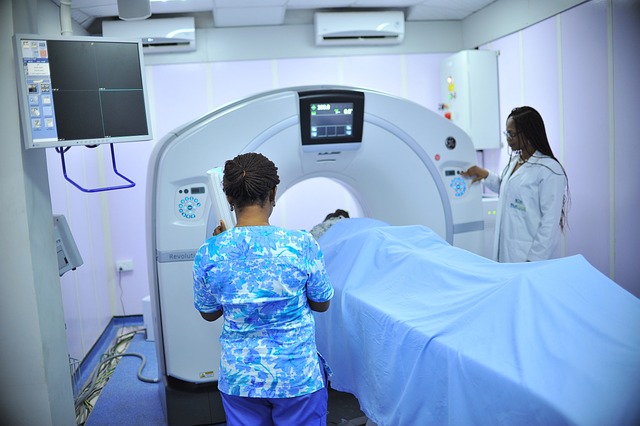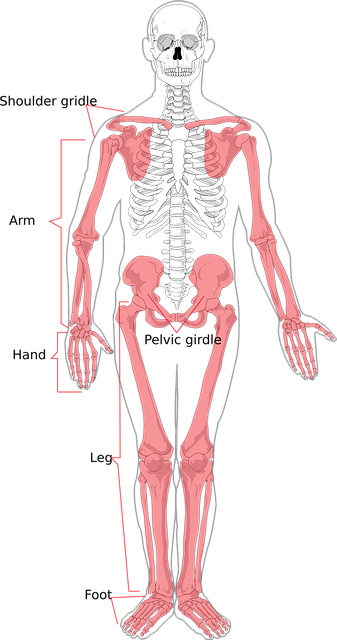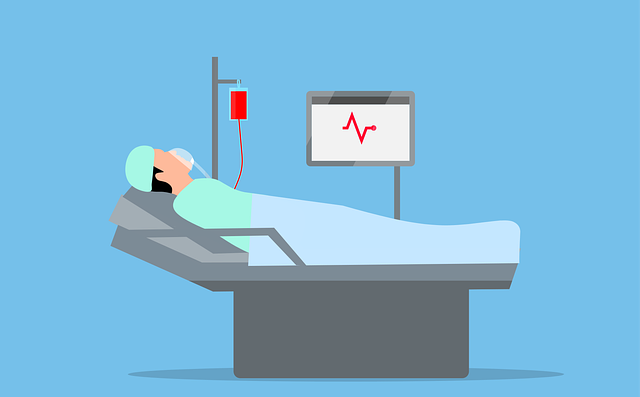A robust healthcare scheduling system automates appointments, reduces wait times, and integrates with EMRs for efficient data management. It streamlines booking, improves no-show management, and provides insights for strategic resource allocation and process improvements, ultimately enhancing patient satisfaction and clinic efficiency.
In today’s fast-paced healthcare landscape, efficient clinic management is paramount. Introducing innovative healthcare scheduling systems that revolutionize patient care by streamlining appointments and managing resources optimally. This cutting-edge technology automates the scheduling process, enhancing patient experiences while reducing wait times. Integrating seamlessly with existing systems, these solutions provide valuable data-driven insights for continuous improvement. By optimizing resource allocation and simplifying appointment management, healthcare providers can focus on delivering better care to every patient.
- Streamline Scheduling for Efficient Clinic Management
- Automate Appointments: Enhance Patient Experience
- Optimize Resource Allocation for Better Care
- Reduce Wait Times: Increase Patient Satisfaction
- Seamless Integration: Connect with Existing Systems
- Data-Driven Insights for Continuous Improvement
Streamline Scheduling for Efficient Clinic Management

In today’s fast-paced healthcare environment, efficient clinic management is paramount to ensuring optimal patient care and operational success. A robust healthcare scheduling system acts as a cornerstone in this pursuit, offering solutions tailored for both new and existing patients. By automating scheduling processes, this technology streamlines appointments, reducing manual effort and potential errors. This not only improves overall clinic efficiency but also enhances patient satisfaction by providing a seamless booking experience.
Furthermore, an advanced appointment software incorporates features like no-show management to optimize resource utilization. Through intelligent tracking and reminders, it minimizes empty appointment slots, allowing healthcare providers to better manage their schedules and cater to waiting patients. Scheduling automation, coupled with effective no-show control, creates a harmonious balance, ensuring appointments are kept while offering flexibility for unexpected circumstances.
Automate Appointments: Enhance Patient Experience

Automating appointments through a robust healthcare scheduling system significantly enhances patient experiences. By streamlining the process from booking to confirmation, patients enjoy greater convenience and control over their schedules. This digital approach eliminates the hassle of phone tag or lengthy waiting times, fostering a positive first impression of the clinic.
Integrated calendar options allow patients to sync their personal calendars, receiving reminders for upcoming appointments. Efficient no-show management features further reduce rescheduling inconveniences by promptly freeing up time slots for other patients. Additionally, EMR (Electronic Medical Record) scheduling integration ensures that patient information is accurately captured and readily accessible, contributing to timely and effective treatment.
Optimize Resource Allocation for Better Care

One of the key benefits of implementing a robust healthcare scheduling system is the ability to optimize resource allocation. By seamlessly integrating calendar management and scheduling automation, clinics can efficiently distribute staff resources based on patient needs and availability. This ensures that each appointment slot is utilized effectively, minimizing wait times and maximizing patient care.
The advanced features of an efficient scheduling software go beyond simple appointment booking. It enables healthcare providers to gain valuable insights into resource utilization patterns, helping them identify areas for improvement. For instance, the system can highlight periods of high demand or pinpoint underutilized staff members. This data-driven approach allows for better planning and allocation, ultimately leading to improved patient satisfaction as a result of more accessible and timely care.
Reduce Wait Times: Increase Patient Satisfaction

One of the most significant benefits of implementing a healthcare scheduling system is the substantial reduction in wait times for patients. Traditionally, managing appointments and scheduling can be time-consuming, often leading to long waits for both staff and patients alike. With an automated appointment software, this process becomes seamless. The system allows for efficient calendar integration healthcare, enabling staff to manage multiple patient schedules simultaneously. By streamlining the scheduling process, patients experience shorter wait times, which directly contributes to increased satisfaction and a positive perception of the clinic’s services.
A well-designed healthcare scheduling system leverages scheduling automation to optimize appointment workflows. This not only improves operational efficiency but also ensures patients are seen promptly, enhancing their overall experience. As a result, patients are more likely to remain satisfied, promote the clinic through positive word-of-mouth, and encourage repeat visits, fostering a loyal patient base.
Seamless Integration: Connect with Existing Systems

One of the key benefits of a robust healthcare scheduling system is its seamless integration with existing practices and technologies. This means that clinics can easily connect their new patient scheduling software with their Electronic Medical Record (EMR) systems, streamlining data flow and eliminating manual data entry. By incorporating scheduling automation into their workflow, practices can bid farewell to no-show management headaches, as automated reminders and rescheduling options improve patient attendance rates.
This integration ensures that the healthcare provider’s office is equipped with a comprehensive view of patients’ records, availability, and preferences at all times. For instance, the system can pull relevant patient history from the EMR, suggest appropriate appointment slots based on previous visits, and send out personalized invitations to ensure patients feel valued and informed. With such a smooth transition, healthcare professionals can focus more on delivering quality care rather than navigating complex scheduling processes.
Data-Driven Insights for Continuous Improvement

A robust healthcare scheduling system doesn’t just streamline appointments; it offers data-driven insights that are crucial for continuous improvement. By analyzing patient behavior and preferences, such a system can identify trends in appointment times, duration, and frequent no-shows, enabling clinics to optimize their schedules accordingly. For instance, integrating EMR (Electronic Medical Record) scheduling can provide real-time data on patient demographics, allowing healthcare providers to tailor services better and ensure efficient use of resources.
Moreover, the best healthcare scheduling software provides calendar integration healthcare features that facilitate seamless communication between patients and medical staff. This not only enhances patient satisfaction but also ensures no appointment is missed or overbooked. The continuous feedback loop created by these data-driven insights empowers healthcare facilities to refine their processes, making them more responsive to patients’ needs and ultimately improving overall clinic efficiency.
